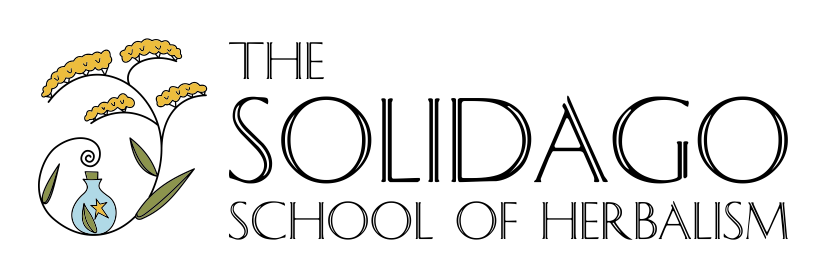As spring carries on and the plants awaken from their winter slumber, we think more about foraging and gardening medicinal plants.
In the Healthy Herb podcast, I have been talking about ethical wildcrafting practices, concepts, and growing wild herbs in gardens, in episodes 7, 8, & 9. If you would like to listen to them, you can find them anywhere you listen to podcasts or here.
I would like to share a brief synopsis of episode 9, Growing Wild Plants in Your Garden.
One approach to wildcrafting, is to include the wild herbs into your gardens.
There are many common wild medicinal plants (aka weeds) that look beautiful in gardens and offer us medicine.
By growing wild plants in your garden, you can ensure ethical wildcrafting practices, because you can wild harvest right in your garden!
You can monitor and ensure healthy populations of the plants that you care for.
You can grow endangered plants, so that you then you are increasing the overall population of the plant on the planet.
Growing your own wild plants is easier and more convenient than needing to travel to harvest them.
You can promote populations of the wild medicinal plants outside your garden, by spreading their seeds or transplanting clumps as they grow too large for the garden space.
Many of these wild herbs do not need very rich soil. It depends on what you plan to benefit from more, the nutrition of an herb or the medicinal benefits.
The nutrition in an herb will come from rich garden soil or from herbs that have long tap roots, able to mine minerals from deep in the soil.
Medicinal constituents of herbs are often found in higher amounts, when a plant is living in a more stressed environment or poor soils.
Below I have listed some wild herbs that make nice garden plants. I talk more about them in the podcast.
Mullein (Verbascum thapsus)
Self Heal (Prunella vulgaris)
Saint John's Wort (Hypericum perforated)
Plantain (Plantago major)
Yarrow (Achillea millefolium)
Coltsfoot (Tussilago fanfare)
Violet (Viola spp)
Goldenrod (Solidago spp
Red Clover (Trifolium pratense)
Hawthorn (Crataegus spp)
Elder (Sambucus canadensis)
The wild garden is a gentle plea for chaos. Thank you to an elder gardener who turned me onto the title of the book.
Nature is chaos. Acceptance of this helps us navigate life and to find ways to encourage gentle chaos in our lives and especially in our gardens.
If you are interested in learning more about foraging medicinal plants, check out my patreon membership classroom here. and keep checking in on the podcast. The patreon membership classes will focus on seasonal foraging, gardening, and medicinal plants. For as little as $5/month you will have access to various ebooks, audio classes, and videos. Available now from past months are Rosemary, Evergreen trees, and Usnea Lichen. Next month we will be delving into Dandelion and making wild salads with a variety of spring greens.
For free you can find the podcasts, podcast notes, and a class I gave on Sustainable Foraging.
Be well, let intuition guide you, and have fun with herbs!












